Wordpress & Pod deployment
1. Create a Pod
First, create a new Pod to house both the WordPress and MariaDB containers.
$ podman pod create --name wordpress-pod -p 8080:80
af245546816ea8d82dea5254f40db9455bd6841321f58a9377390d40a7a9e192
2. Deploy the MariaDB Container Inside the Pod
Run the MariaDB container inside the newly created Pod. This container will store WordPress data in the database.
podman run -d \
--pod wordpress-pod \
--name mariadb \
-e MYSQL_ROOT_PASSWORD=rootpassword \
-e MYSQL_DATABASE=wordpress \
-e MYSQL_USER=wpuser \
-e MYSQL_PASSWORD=wppassword \
-v mariadb_data:/var/lib/mysql \
mariadb:10.5
Here:
- The --pod wordpress-pod flag ensures that the MariaDB container is attached to the Pod.
- The container is running with environment variables to configure the database.
- A volume mariadb_data is used to persist MariaDB data.
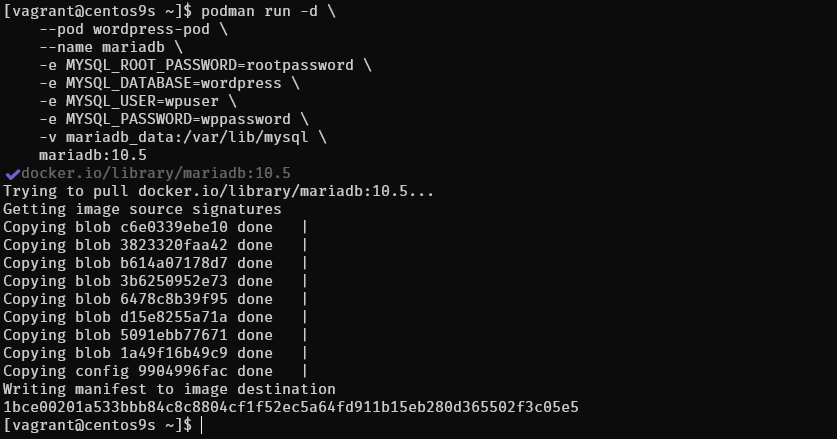
3. Deploy the WordPress Container Inside the Pod
podman run -d \
--pod wordpress-pod \
--name wordpress \
-e WORDPRESS_DB_HOST=127.0.0.1 \
-e WORDPRESS_DB_NAME=wordpress \
-e WORDPRESS_DB_USER=wpuser \
-e WORDPRESS_DB_PASSWORD=wppassword \
-v wordpress_data:/var/www/html \
wordpress:latest
Here:
- The --pod wordpress-pod flag attaches the WordPress container to the same Pod.
- The WORDPRESS_DB_HOST=127.0.0.1 variable points to the local MariaDB instance inside the Pod (as both containers share the same network namespace).
- The WordPress content is persisted with the volume wordpress_data.
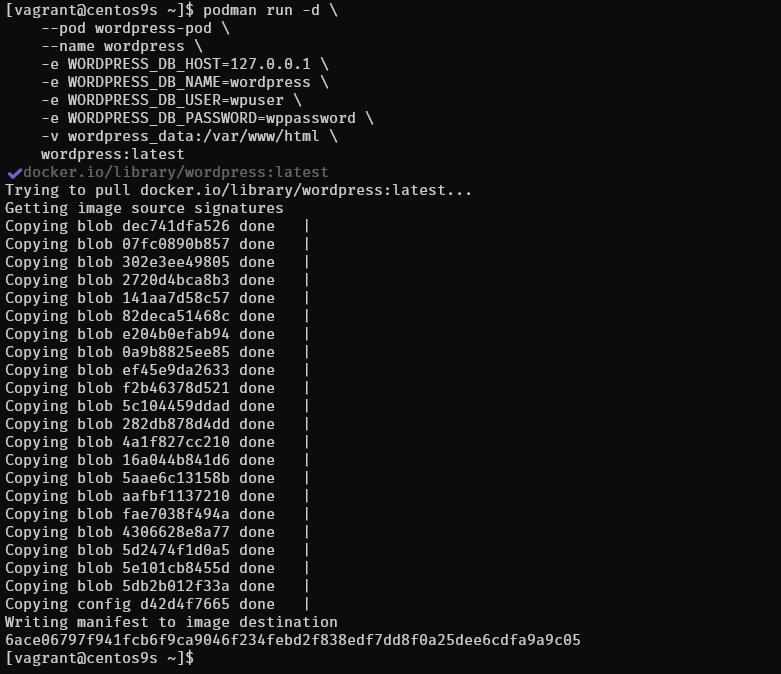
4. Verify the Pod and Containers
To check if both containers are running in the Pod, you can use the following command:
$ podman ps --pod
This should show the Pod wordpress-pod and both containers (mariadb and wordpress) running inside it.
5. Access WordPress http://<your_server_ip>:8080
Open your web browser and navigate to http://192.168.30.10:8080. You should see the WordPress installation page, where you can complete the setup.
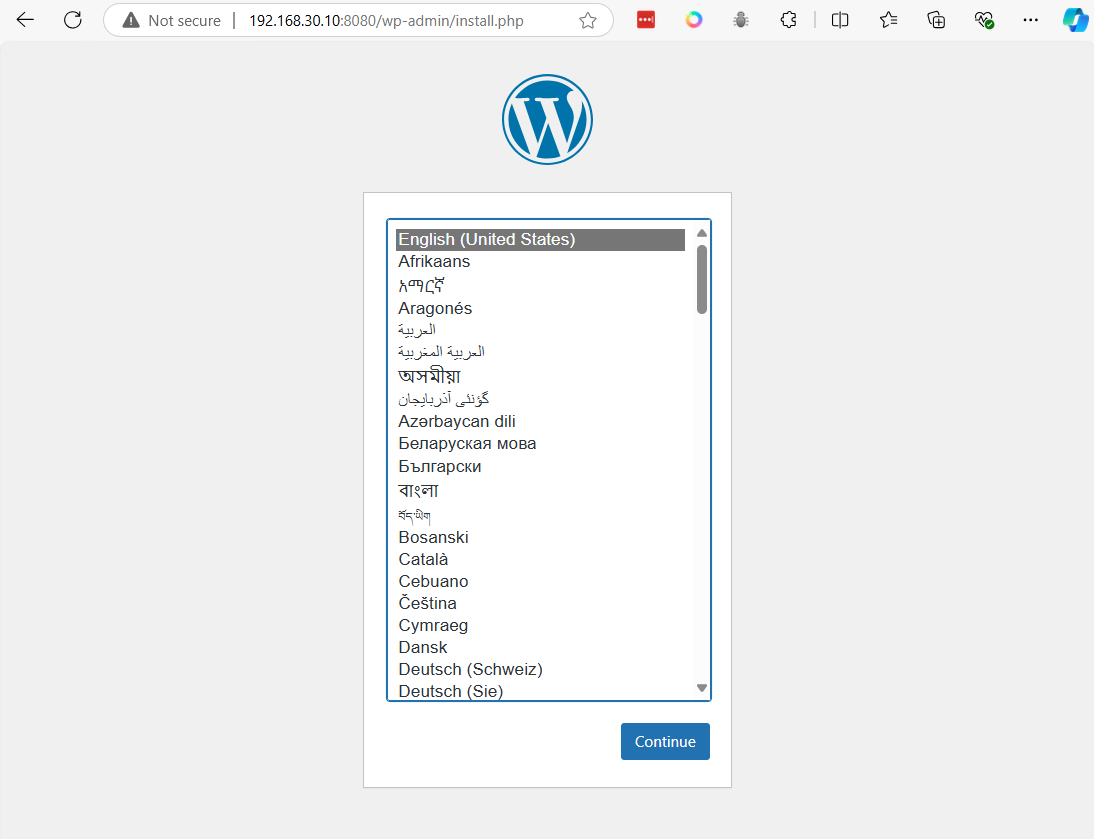
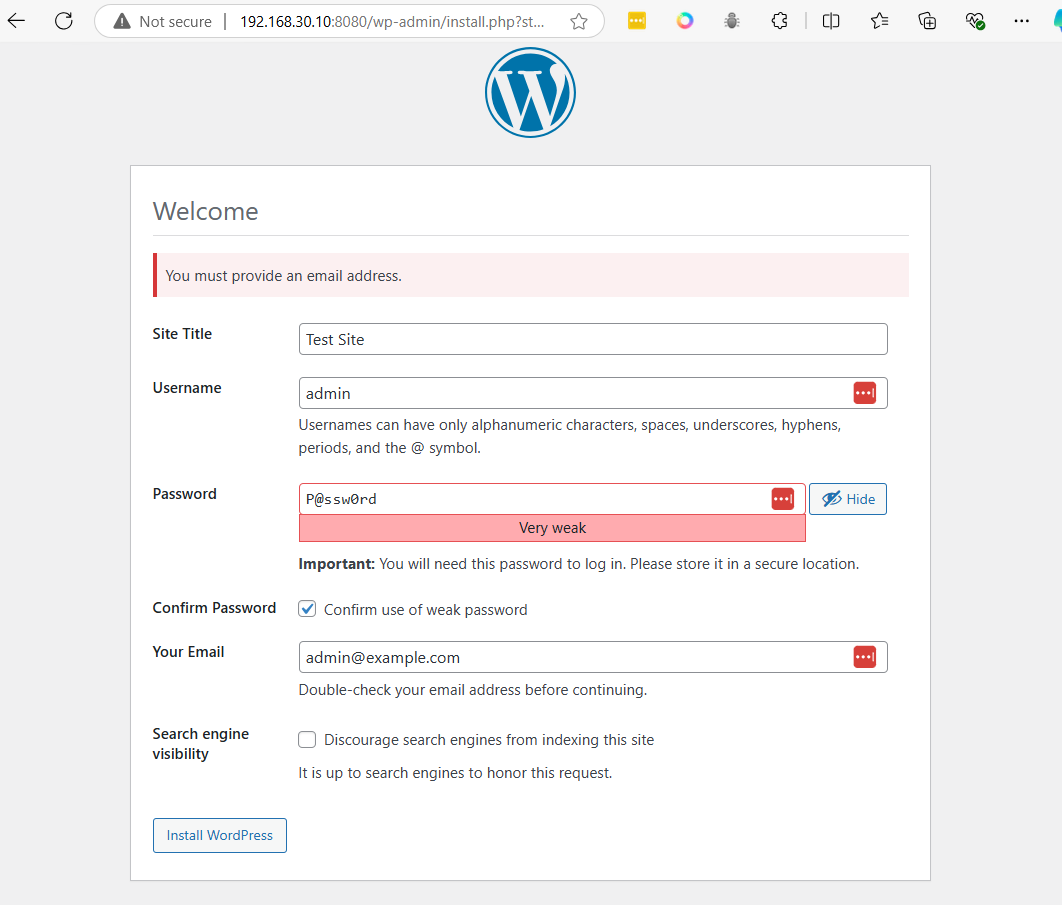
- Press install
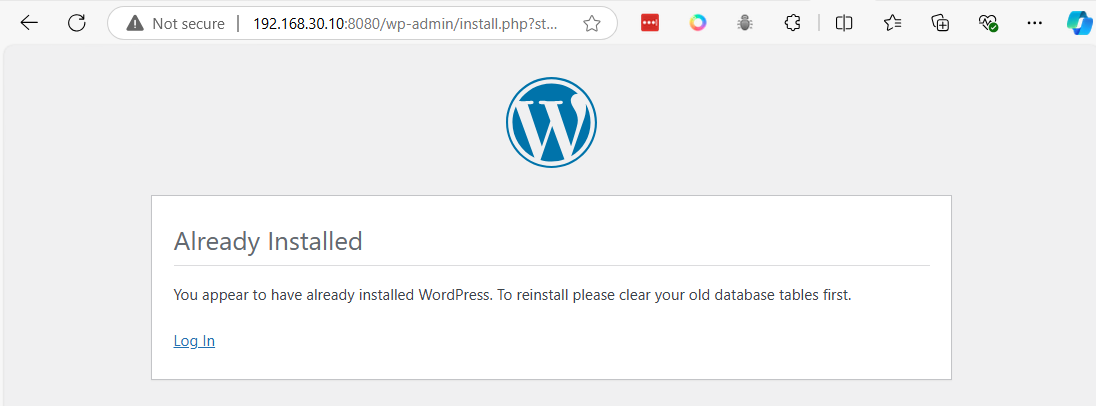 login
login
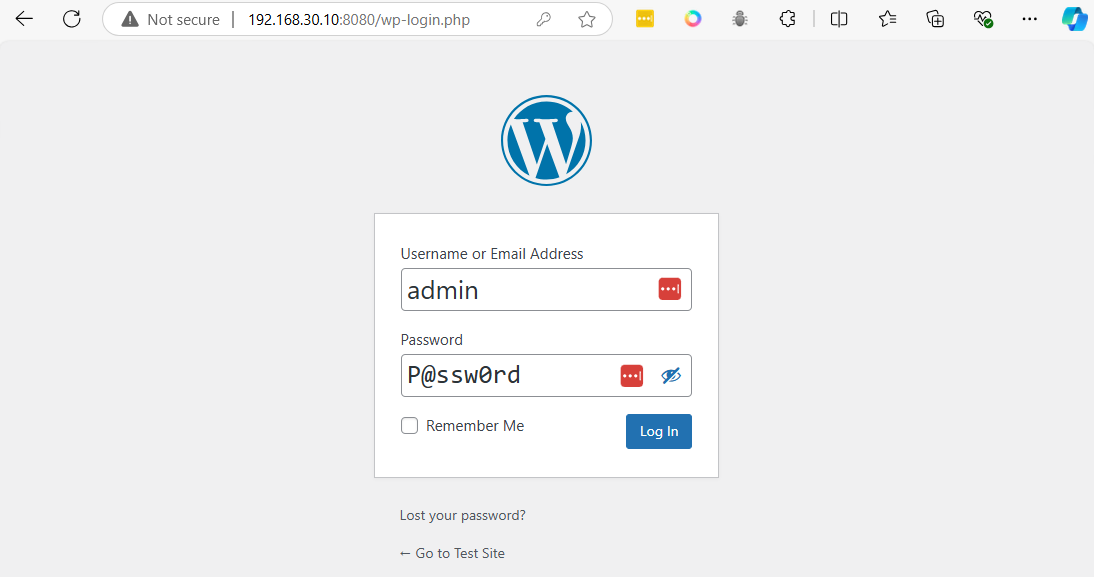
6. Use Ngrok to access
-
create Accout https://ngrok.com/
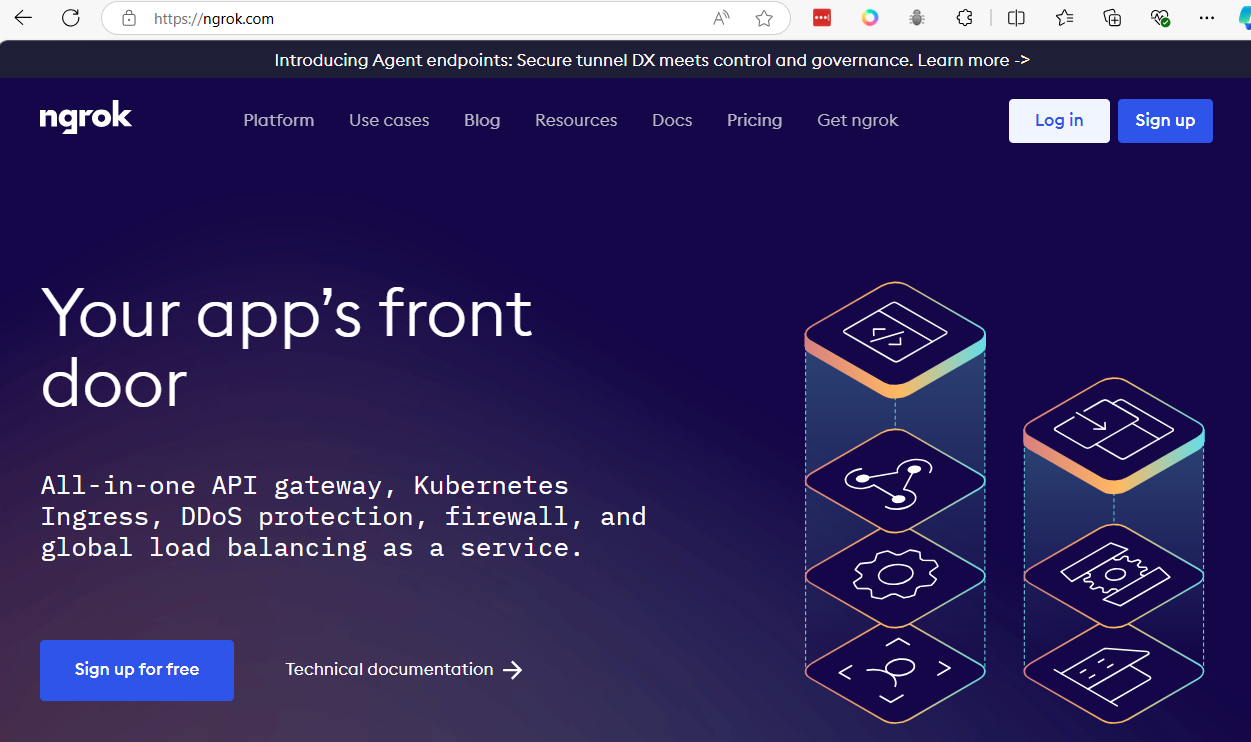 Login
Login
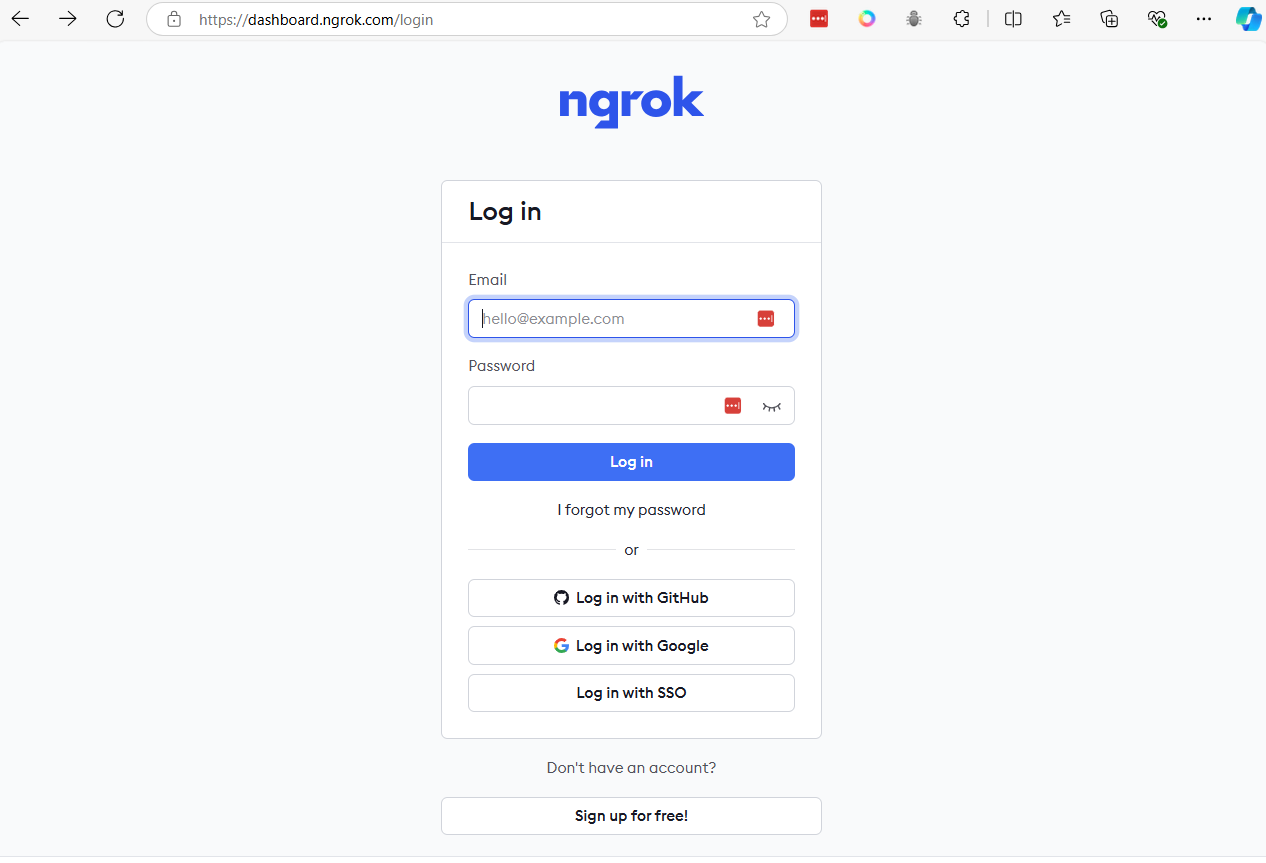
-
Open Dashboard ngrok (https://dashboard.ngrok.com/)
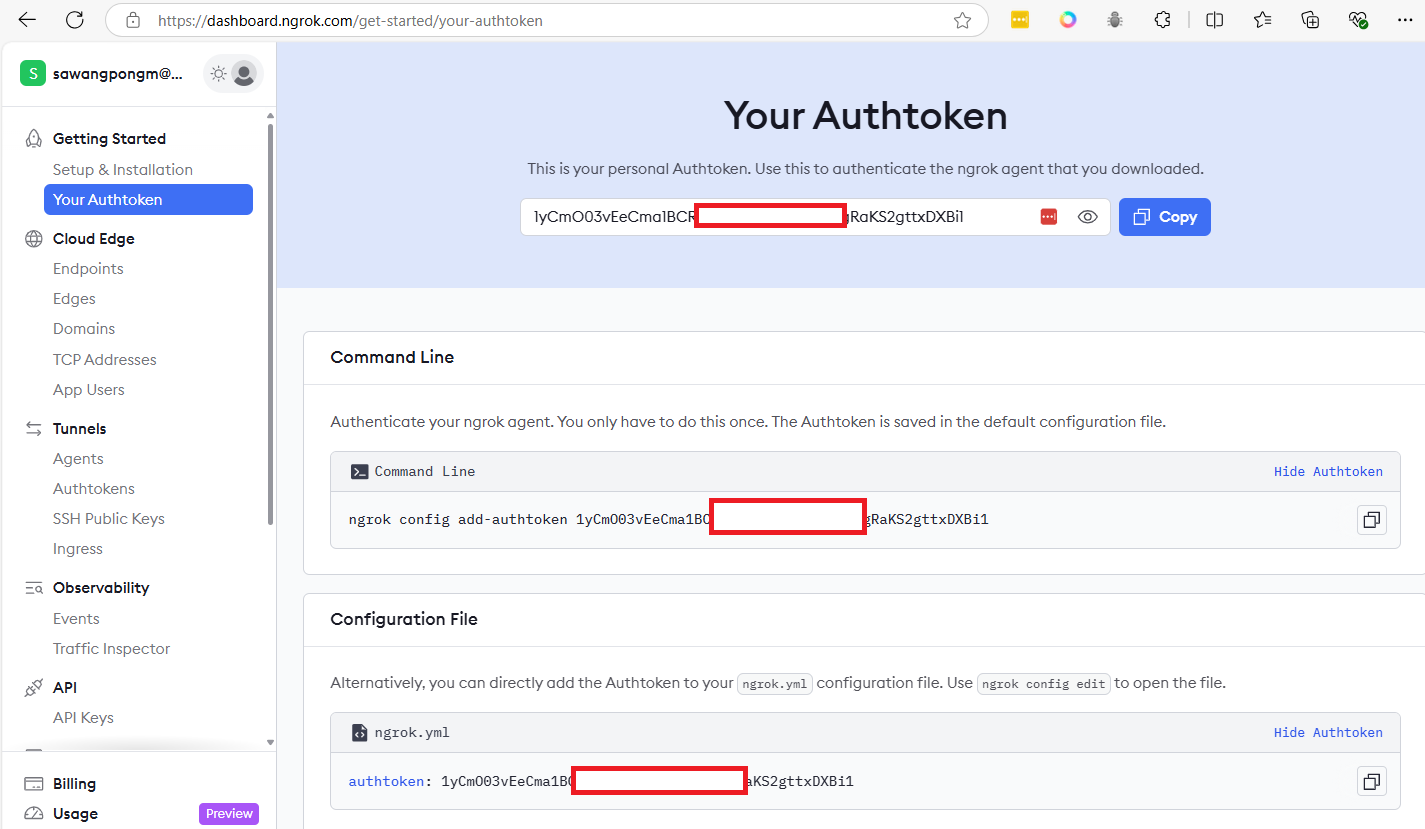
-
Get token, copy it
-
Download ngrok to vm
wget https://bin.equinox.io/c/bNyj1mQVY4c/ngrok-v3-stable-linux-amd64.tgz
sudo tar xvzf ./ngrok-v3-stable-linux-amd64.tgz -C /usr/local/bin
- ngrok authtoken NGROK_AUTHTOKEN
ngrok config add-authtoken 1yCmO03vEeCma1BCRaxxxxxxxxxxxxjs5NgRaKS2gttxDXBi1
- change to you token
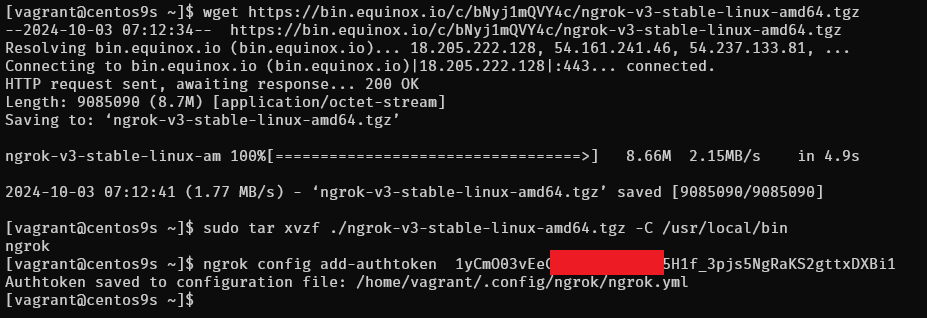
Create tunnel to app

Enter

copy https://a589-27-55-83-157.ngrok-free.app
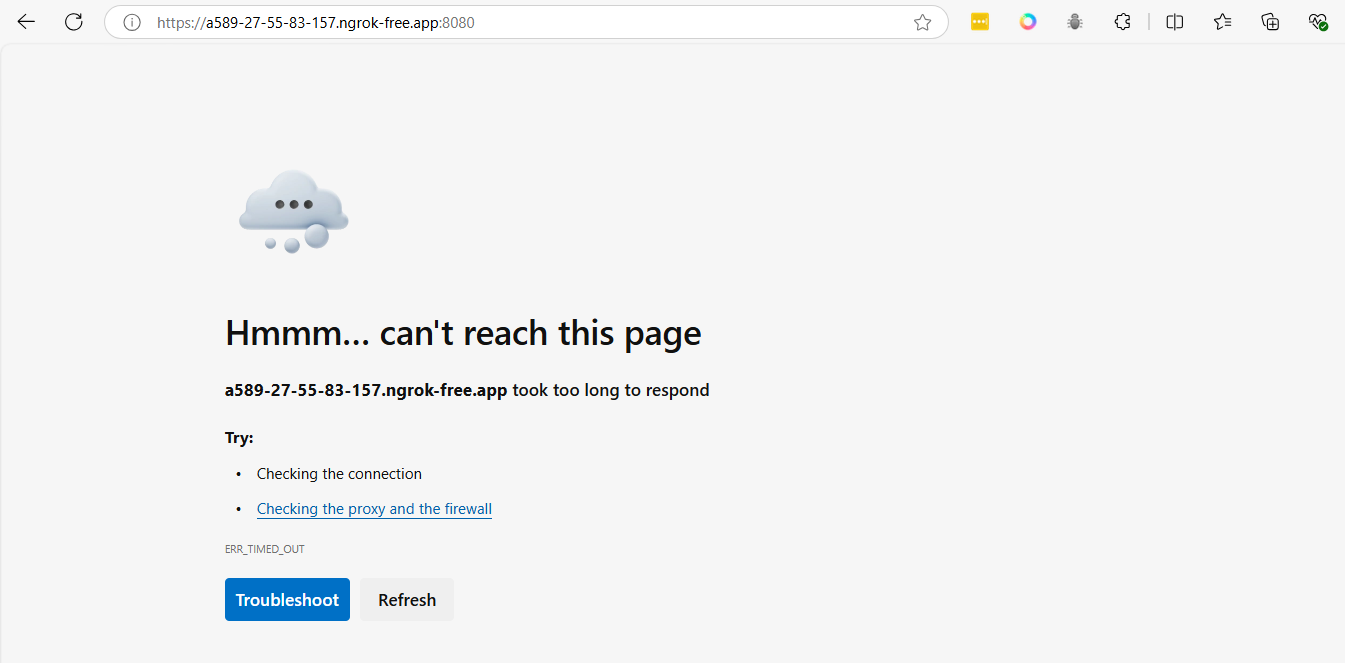
7. Managing the Pod
- Stop pod
podman pod stop wordpress-pod
- Start the Pod
podman pod start wordpress-pod
- Remove
podman pod rm -f wordpress-pod